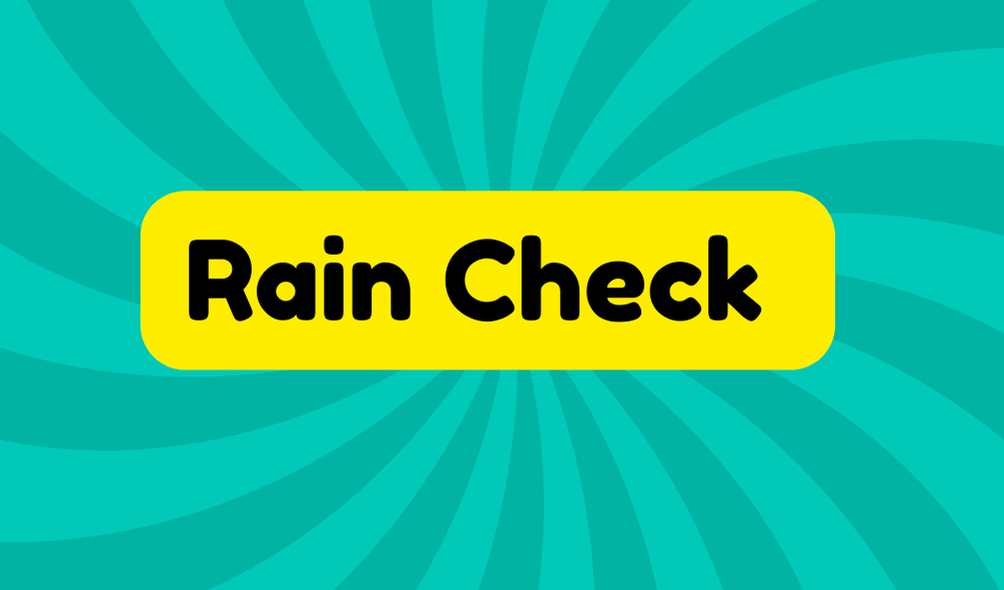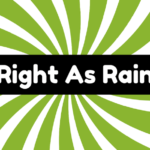A "rain check" refers to postponing plans while indicating a future intent to reconnect. This term originated in the 1870s during baseball games, where ticket holders received vouchers for future games rescheduled due to rain. You might say, "I need to take a rain check on lunch; I'm swamped with work." While it reflects flexibility in our busy lives, using this phrase too often can make you seem unreliable. Balancing the intention to reconnect with honesty is essential for maintaining relationships. If you're curious about its modern relevance and how to use it effectively, there's more to uncover.
Synonyms
When you're looking for ways to express the idea of postponing a commitment or declining an offer with the potential for future acceptance, there are several synonyms you can use. It's important to know these alternative phrases, as they can enhance your communication and keep things friendly. Here are some informal expressions you might consider:
- "Let's circle back later."
- "I'll pass for now but may join next time."
- "How about we reschedule?"
- "Can I take a rain check?"
- "Let's connect another time."
Using these will give your dialogue a fresh twist. However, keep in mind that these phrases can sometimes appear insincere if used excessively. Balance is key in maintaining genuine connections while expressing your intentions.
Example of Sentences
You might want to use "rain check" in various contexts to convey your intention to postpone a commitment. The phrase has become a useful tool in handling today's social dynamics, even if it can lead to some communication challenges. Here are a few examples to inspire you:
- "I'll need to take a rain check on our lunch date; work's overwhelming."
- "Sorry, I'm taking a rain check on the game; I got caught up in life."
- "She requested a rain check for our coffee; next week looks better."
- "Let's take a rain check on the hike; the weather's just not cooperating."
- "I'll have to take a rain check at the party; family obligations call."
Using rain checks isn't inherently bad, but it's essential to communicate clearly to avoid misinterpretations.
Origin
The origin of the phrase "rain check" dates back to the 1870s in the United States, specifically in relation to baseball games. When heavy rain postponed matches, ticket holders received a voucher—known as a rain check—for admission to a future game. This historical context showcases baseball's cultural significance, as it highlights how sports shaped social interactions. Over time, the meaning evolved to represent a polite decline that implies a potential future commitment, reflecting our societal desire for flexibility. However, while it may sound harmless, taking a rain check can sometimes stir skepticism, potentially causing misunderstandings in relationships. So, before you accept one, consider the subtle implications tied to this seemingly simple phrase.
Collocations
Understanding the phrase "rain check" extends beyond its origin; it also encompasses various collocations that enhance its usage. You'll find that employing the term with specific phrases helps clarify your intent, especially regarding social invitations or future commitments. Here are some relevant collocations to reflect upon:
- "Take a rain check on"
- "Give a rain check for"
- "Request a rain check"
- "Offer a rain check"
- "Cash in a rain check"
These combinations reveal the nuances and potential misunderstandings associated with postponement. While it may sound polite, relying on rain checks can lead to skepticism about your intentions, often making your audience question the certainty of your future commitments. Use these collocations wisely to foster genuine connections.
How to Use in Everyday Language
In everyday conversations, many people find using "rain check" a helpful way to navigate social commitments. However, it's essential to remember that while it sounds polite, it can sometimes reveal a lack of genuine interest. By taking a rain check, you're practicing social etiquette but may risk miscommunication if not done thoughtfully. Clear communication strategies are important here; if you genuinely want to reschedule, express your interest explicitly. Avoid overusing this phrase; it might come off as avoidance rather than consideration. Instead, aim for honesty about your availability. This approach not only maintains your relationships but also reinforces your reliability, showing others you're worth their time—even if it means saying no today for tomorrow's opportunity.
Why Is It Still Relevant Today?
Rain check's relevance today stems from its ability to resonate in our fast-paced, commitment-heavy lives. As you navigate the socio-cultural dynamics of modern communication, you might find that commitments often clash. This expression allows you to postpone without sounding dismissive, preserving social bonds. However, relying on rain checks can also create a facade of flexibility, when in reality it might lead to misunderstandings. People may question your commitment if you often take rain checks. It's crucial to balance innovation with honesty; using this term should be thoughtful, not a crutch. In a world that values immediacy, it's worth considering how often you genuinely intend to cash in those future promises.







